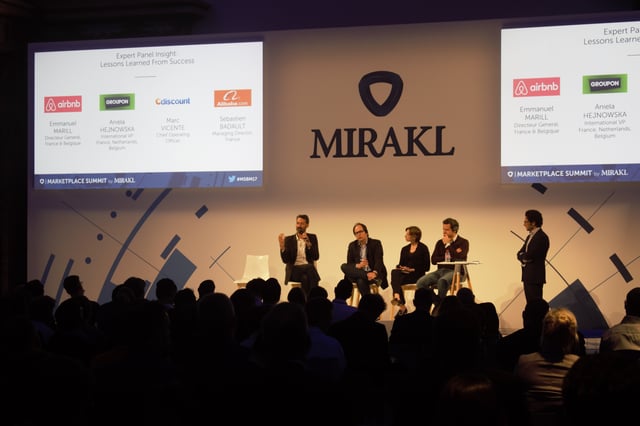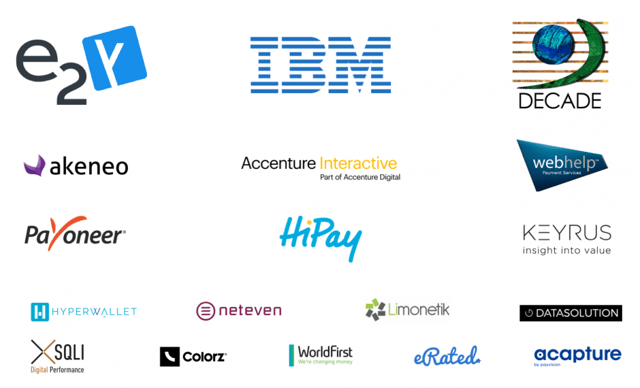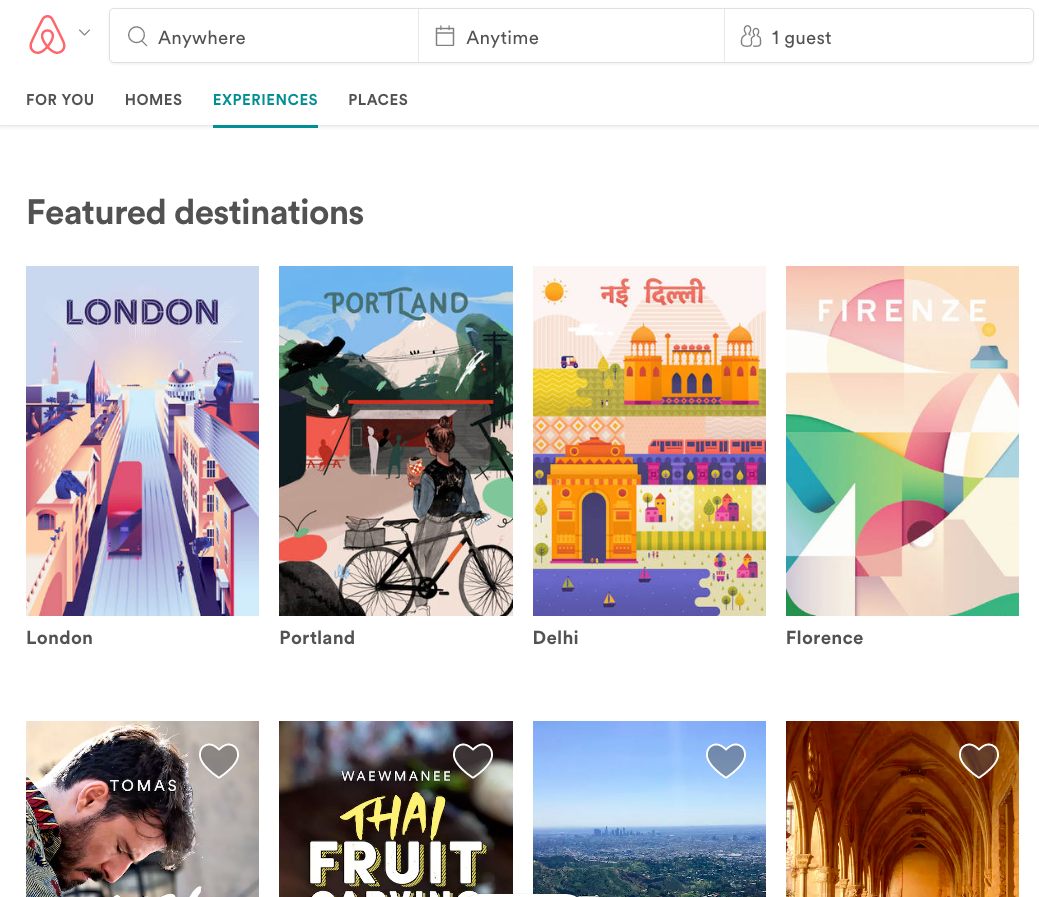We’ve just finished two days discussing why marketplaces are capturing the lion’s share of consumer purchases online at the Marketplace Summit by Mirakl. Each year, attendance at our annual user conference doubles as Amazon continues to make every retailer & brand take notice of the marketplace model.
While European companies are aggressively pursuing increasing their product offer & profit margin with their marketplaces, American companies are surprisingly behind. Why? Top retail analyst & influencer Sucharita Mulpuru kicked our event off by sharing the myriad of distractions faced by retailers today.
Sucharita says: Ignore the hype; don’t focus on trends like AR/VR, wearables, and IoT that won’t impact you near term

Sucharita’s talk explored the myriad of choices facing retailers today as they search for growth. Those options include building experiences for virtual & augmented reality apps and wearable
The bottom line: Marketplaces offer the near-term benefits companies need to survive. The fast increase product offers & site traffic give marketers and merchandisers the ability to capture more customers and revenue. The hyped solutions may offer slightly better conversion with existing customers, but will more likely waste critical R&D dollars on experiences consumers aren’t ready for.
Best Buy Canada carefully piloted their Marketplace to gain buy-in and test products

Sucharita’s panel with Thierry Hay-Sabourin, SVP eCommerce at Best Buy Canada, and Antoine Brouwer, Managing Director at Nextail / Blokker, opened up the discussion around how to get the quick wins with your Marketplace.
A key theme Thierry and Antoine discussed is that while marketplace projects are
Marketplaces provide a strong competitive response to - you guessed it - Marketplaces
While Amazon’s hit to US-based businesses was fairly immediate, and hard for those retailers to quickly respond to, retailers in other countries have seen
Product expansion through marketplaces isn’t just for non-core categories
The initial wave of assortment expansion has been focused around non-core categories. And it was for two reasons:
1) It allowed companies a
2) It eased people into the model (particularly merchandisers, product managers, and category owners) who were afraid of marketplace products cannibalizing sales in their core categories.
2016 appeared to be a turning point for our customers who are now moving into core category expansion – such as Best Buy Canada now offering unlocked mobile devices via the marketplace, and soon in stores. This is a great showcase of the
2017 is the year B2B marketplaces take off
This year almost half of our attendees were from B2B companies who are already working with Mirakl, or about to. They’re in a race to transform their digital presence and add more value for themselves, their brand partners, and business customers. IPH gave a great showcase of how the marketplace allows their local network brands to enable e-Business for their customers, creating more business for IPH, a net new capability for their brands, which allows easy online transactions for business customers. It’s a true win-win-win.
Forrester recently cited over 80% of B2B buyers have made work purchases on Amazon, which showcases the threat to the value chain of manufacturers -> distributors -> business consumers. Mirakl partnered with Roland Berger and
Customers such as Groupe Le Duff, who’ve launched an extremely innovative B2B marketplace with Gourming.com that allows small food providers to sell directly to businesses, Metro Cash & Carry France, and Conrad, who are on the cusp of launching their marketplace – joined Olivier to share their stories in front of a packed room.
We also were joined by Forrester’s leading B2B Commerce analyst, Andy Hoar, who shared the results from a study Mirakl conducted with SAP Hybris exclusively focused on
DIY marketplace platforms have a short shelf-life
One of the highlights for me was being able to close the event with an expert panel – which included senior executives from Alibaba, Groupon, AirBnB

The Mirakl Labs team is on fire 🔥
I couldn’t be more proud of our technical team which we call Mirakl Labs. The team is now 70 people strong, and our product owners gave an amazing showcase of the product innovation that’s taken place over the past year – such as launching 100 new features which have allowed us to deliver so much value to our B2C and B2B
This epic event would not have happened without the support of our partners

Thank you to our partners, customers, and almost customers for joining us. We cannot wait to get back together in 2018.
Topics : B2B eCommerce B2C eCommerce Mirakl Summit

Written by Adrien Nussenbaum
Graduated from HEC Paris, Adrien Nussenbaum started his career with Paribas in Hong-Kong. He then went on to co-found All Instant, an instant messaging solution that was later sold in 2003. While with Deloitte, as part of the restructuring team, he advised many retailers who were in the throes of company turnarounds and transformations until 2005.


